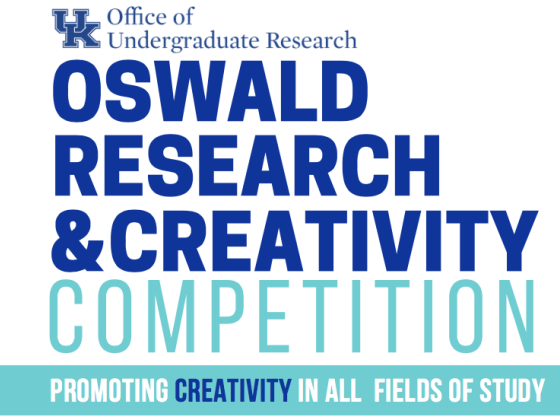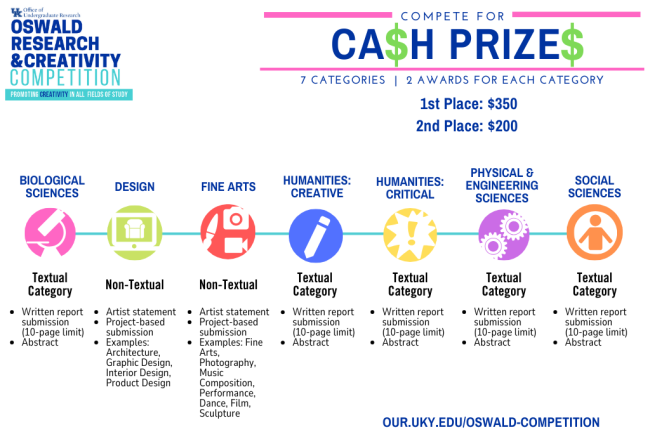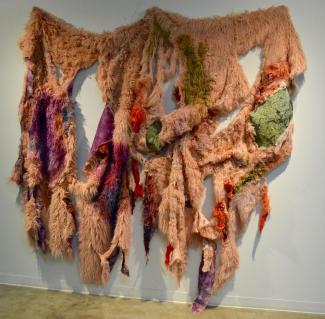REGISTRATION OPENS SEPT. 15
Displays (video, art, audio, structural designs, etc.) in the Design and Fine Arts categories must include a description, to be included in the registration form. Write something that accurately describes your work and that you would be proud to show the public. Descriptions should consist of an overview of the project and any other descriptive and/or discussion materials the author feels are warranted.
Note: Students are responsible for providing all display props and materials (e.g., dress form). We will provide easels, small tables, and hanging materials (e.g., Command hooks)
A registration form must be submitted in order for the submission to be included for judging.
Students can submit different projects in multiple categories (e.g., painting in Fine Arts, poem in Humanities: Creative, etc.)
NOTE: Every entry must include an Abstract (300 words maximum). Abstracts should:
- Clearly state the central research question and/or purpose of the project.
- Provide brief, relevant scholarly or research context (no actual citations required) that demonstrates its attempt to make a unique contribution to the area of inquiry.
- Provide a brief description of the research methodology.
- State conclusions or expected results and the context in which they will be discussed.
- Include text only (no images or graphics)
- Be well-written and well-organized.
Design and Fine Arts submissions will be exhibited in the Lucille Caudill Little Fine Arts Library the week of November 10-13, 2025.
- Student projects will be displayed in the glass wall area across from the elevator near the first-floor entrance of the Lucille Caudill Little Fine Arts Library.
- Students can submit ONE project in multiple categories (e.g., painting in Fine Arts, a poem in Humanities: Creative, etc.)
- Project Drop-off is Monday, Nov. 10, in the Fine Arts Library (follow the signs). Project drop-off is from 8:30 - 11:30 AM.
- Project pick-up is Friday, Nov. 14, from 8:30 - 11:30 AM in the Fine Arts Library
- Blind judging takes place during the week
*Names and any other identifying information must be removed from the displays for judging purposes.
The Oswald Competition is meant to promote creativity at its highest level. As such, the submission guidelines are very brief and intended not to restrict authors in any way. Our office encourages any and all submissions.


